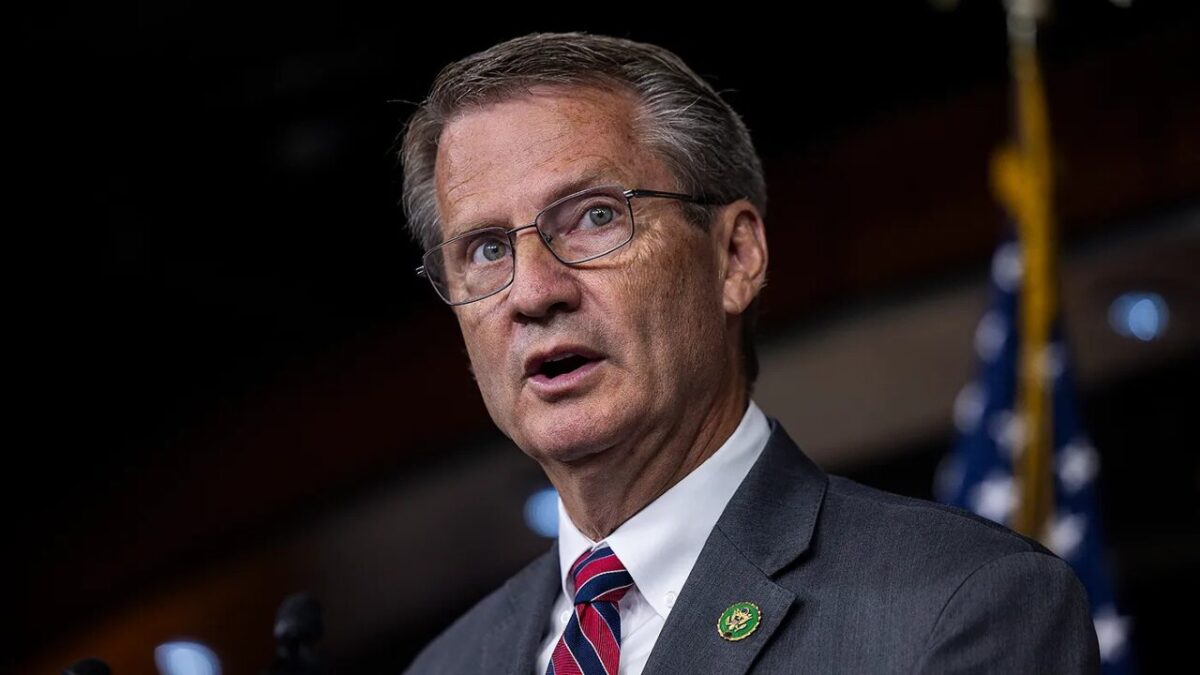WASHINGTON — Representative Tim Burchett, Republican of Tennessee, has claimed that as much as $40 million in U.S. taxpayer funds is reaching Afghanistan each week, raising concerns that the money may ultimately benefit the Taliban despite restrictions on direct foreign aid.
“We’ve been told that it is, somehow they’re getting it,” Mr. Burchett said in an interview on Friday. “That’s on the surface that we know about.”
After the U.S. military withdrawal from Afghanistan in August 2021, the Biden administration had continued to provide humanitarian assistance to the country, arguing that aid was necessary to support Afghan civilians. However, oversight agencies and lawmakers have questioned whether such assistance is being misused under Taliban rule.
The $40 million weekly cash transfers to Afghanistan stem from a United Nations-led humanitarian relief effort, to which the United States is the largest donor, according to a January 2024 report by the Special Inspector General for Afghanistan Reconstruction (SIGAR).
In testimony before Congress last April, SIGAR’s chief, John Sopko, said that the U.S. had allocated $8 billion for Afghanistan since the withdrawal. It remains unclear whether the ongoing cash infusions come from that pool of funds or how long the money is intended to last.
A report from the Center for Strategic and International Studies (CSIS) cited SIGAR’s findings that the Taliban have “siphoned or benefited from a considerable amount of humanitarian aid.” According to the report, the group has allegedly done so by infiltrating non-governmental organizations partnered with the United Nations, imposing fees and taxes on aid workers, and directing relief efforts toward Taliban officials, their families, and allied groups. In some cases, Afghan civilians receiving aid have reportedly been forced to hand over as much as 60 to 100 percent of the assistance in taxes.
In an effort to prevent U.S. aid from reaching the Taliban, Mr. Burchett introduced the No Tax Dollars for Terrorists Act in December 2023. The bill, which was first brought to his attention by former Navy SEAL Shawn Ryan and an Afghan-American Army veteran known by the pseudonym “Legend,” passed the House of Representatives unanimously. However, it stalled in the Democratic-controlled Senate.
Mr. Burchett reintroduced the bill on Jan. 10, saying in a statement that “this legislation has been sat on long enough” and that he hoped to push it through both chambers.
If enacted, the bill would require the State Department to develop a policy explicitly prohibiting any foreign aid from reaching the Taliban. It would also mandate reports on cash assistance programs in Afghanistan, the mechanisms used to prevent Taliban access, and the status of Afghan financial institutions, including the Afghanistan Central Bank.
Senators Tim Sheehy, Republican of Montana, and Tommy Tuberville, Republican of Alabama, have expressed support for the legislation.
Mr. Burchett has also voiced opposition to U.S. military aid for Ukraine, calling for an immediate halt to funding and urging negotiations to end the war.
“Cut it off. Cut it off. Let’s get them to the table immediately,” he said. “I’m glad that I haven’t voted for a single penny over there.”
He criticized the defense industry’s role in the conflict, arguing that prolonged warfare benefits those profiting from military spending. Quoting his father, a World War II veteran, he added, “‘Old men make decisions and young men die.’”
Concerns over federal spending and accountability
Mr. Burchett, who sits on a committee overseeing government efficiency, praised recent efforts to investigate waste and fraud across federal programs, including Medicaid, Medicare, education, and defense spending.
“I hope they don’t stop. I hope they just keep going,” he said.
He also took aim at the Pentagon, which has failed multiple financial audits in recent years.
“They can’t find half a trillion dollars,” he said. “That is an aircraft carrier that they’ve lost. And how do we punish them? In the last [National Defense Authorization Act], they gave them nine billion new dollars.”
The Pentagon has not publicly responded to the latest round of criticisms, but defense officials have previously said that audits are part of a broader effort to improve transparency and financial management.





